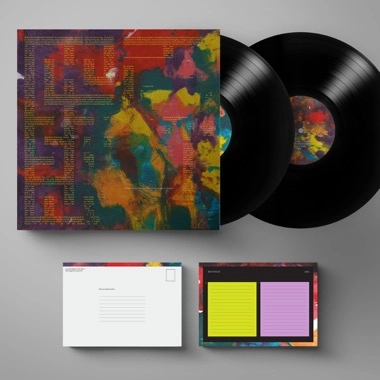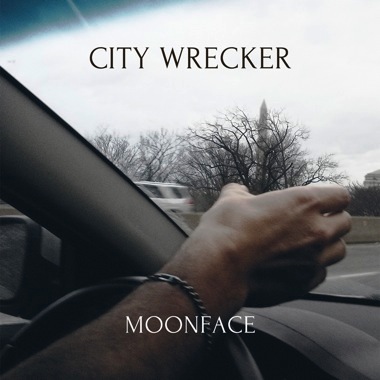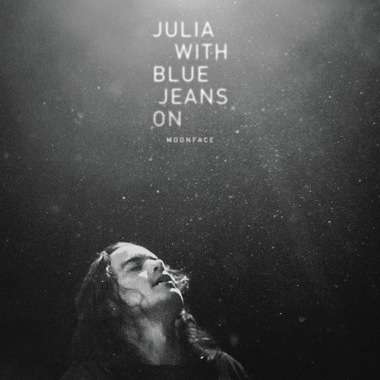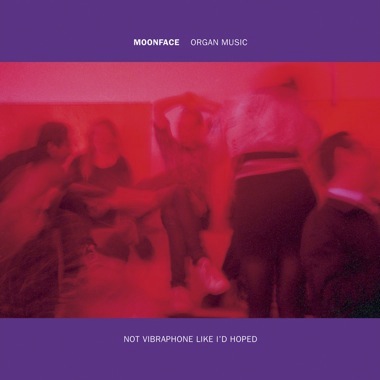Moonface
Final Moonface album: This One’s for the Dancer & This One’s for the Dancer’s Bouquet
This will be my seventh release under the name Moonface, and they say seven’s a lucky number, so maybe that’s as good a reason as any to put the name in the ground. Of course there are other, actual reasons: There is another artist who goes by the name Moonface – a DJ – and their releases get all mixed up with my releases on streaming platforms, in searches, and that’s annoying for everyone. As I believe they had the name before I did, in all fairness, I should give it back. I also believe the name Moonface is offensive to, or at least insensitive toward, those who suffer from Cushing disease, some symptoms of which are an unwanted swelling loosely termed Moon Face. I didn’t know these things in 2009 when I decided on the name because I was a lazy googler, but now that I do, I have regrets. Some less specific reasons: Times have changed and I feel compelled to change with them; to drop the bags I carried in what seems now a former world. As Carey Mercer put it more eloquently, when recently explaining why he’s decided to stop using the name Frog Eyes, “It seems like there’s been some kind of demarcation line created in the past couple years where it feels inappropriate to carry on a project that started, in a sense, pre-climate change, in a sense, pre-Trump.” This idea resonates with me; this nagging feeling of self-made misrepresentation, a discrepancy between the medium and the message, shouting out new ideas while standing on a soapbox built for some bygone campaign. But mostly, I’m just tired of the name, and crave the excitement of a clean slate. I’m in my 40s now, and ready to make music and tour under my own name – Spencer Krug; ready to get personally behind what I do in a more literal and meaningful way. So, why not take this 83 minute LP and make it even more of a swollen gesture: the swan song of Moonface.
Like the title itself, This One’s for the Dancer & This One’s for the Dancer’s Bouquet is made up of two distinct yet connected ideas. The music is culled from two separate projects, each with different collaborators, recorded in different studios, in different towns, in different years. The songs are sung from two completely different standpoints. But rather than split the songs into separate releases, or group them respectively onto the two discs of vinyl they inhabit, I decided to blend them together into one sequence, weave a long, single album, because I think the variation creates a better experience for the listener.
Tracks 1, 3, 6, 8, 10, 14, and 16 – or rather, any song title starting with ‘Minotaur’ – are sung from the perspective of that very character from Greek myth. Within their percussive, dreamy landscapes we can hear, as written in the album credits: “The Minotaur examining the horrible nature of a lifetime trapped unjustly within a labyrinth, while simultaneously forgiving those responsible for putting him there.” These songs are simply an exercise in empathy; a whimsical exploration of a monster’s demise as seen from the monster’s POV, and nothing more. They twist the story of Theseus’ heroism into the Minotaur’s light tragedy, and are not meant to be taken too seriously. The half-man / half-bull does not symbolize me, or any other person or group of people, though the listener is free and encouraged to superimpose any meaning onto the character that they find rewarding.
The music for the Minotaur songs was written in 2011, in my then Montreal tanning-salon-turned-loft-above-cursed-karaoke-bar home, in collaboration with my friend Michael Bigelow. A mutual love of marimba led to jamming, the jamming led to songs, and the songs led us into Breakglass studios where the great Jace Lasek helped us fully realize our rough ideas. But we didn’t have vocals. I had some melodies in my head, but not the words. No problem. I took some time away, returned months later, and sang my fresh lyrics over the instrumental tracks. We mixed it down, we mastered and sequenced the songs, and sent it off to the label. I think we even set a release date… but then I had my very first STOP THE PRESSES! moment, wherein I realized that I hated the lyrics, wholly. They were rushed, forced, and didn’t suit the music whatsoever. I’d had moments of doubt like this in the past, but had always forced myself to ignore to the critical voice squawking behind the left ear and moved forward regardless. This was different. I KNEW these lyrics weren’t doing the music justice, so I asked the label to pull the album from production, telling them I just needed a little more time. Apparently I needed six years. Now living in BC, I for some reason got into this idea of the Minotaur, HIS songs, and the idea immediately gelled with the almost forgotten marimba music. I bought a vocoder so I could represent the minotaur in a voice that was not completely my own, and headed back to Montreal to finish the project. A year later, in 2018, we printed the final mixes. Seven years in the making.
That’s the story of the Minotaur and the Marimba Songs. The remaining songs – tracks 2, 4, 5, 7, 9, 11, 12, 13, 15 – have a more traditional curve. For the most part they were the first songs I wrote upon returning to Canada in 2014 after a two year stint in Finland (except for a reimagining of 2012’s Heartbreaking Bravery and a cover song called Hater, originally recorded by songwriter extraordinaire Chad Jones.) Musically these songs are me exploring some possibilities of digital synths affected with delay, and lyrically they are me trying to exorcise general feelings anxiety, loneliness, regret, and alienation that sometimes lightly plague me. Human problems. As the songs formed, I craved drums, and shot for the stars when I reached out to one of the greatest percussionists I know, Ches Smith. For reasons unclear, he agreed to help. He flew to BC where we met up with Dante DeCaro in his Shawnigan Lake studio, and in just a few incubative days the three of us hatched my little newt eggs into something much more dragon-esque. Much later, after many months of putting the material aside, I sent the songs to saxophonist Matana Roberts, asking if she heard any melodies within she thought worthy of adding. Her answer – amazingly and thankfully – was yes, and the lines she wove seemingly effortlessly into the existing compositions in that quick and explosive session pushed the songs even deeper into the genre-smearing fog I’d been hoping they’d get lost in. It must be said here that the contributions of Ches Smith and Matana Roberts propelled this music even further from itself than I’d expected, in the best possible direction, their ideas forming a kind of spaceship upon which my hobo tunes became stowaway.
In the end, as mentioned above, I decided to mix all the material into one long album. I feel the two worlds compliment one another, or, are like the sun and moon to the same musical planet. Some late night toward the end of production I sat down with my headphones on too loud and listened through the whole thing. (An undertaking which, for what it’s worth, I would never expect of any casual listener. I see each side of this four-sided album as it’s own little journey, a complete listen within itself, and easily enough for one sitting.) When the thing was done playing I had a revelation: this album is fucking DARK. Each song is in some way dense, unmerciful, saturated with notes that act as single raindrops within a downpour. And whether it’s me and Bigelow wailing on percussion as though in a race for most hits, or Smith and Roberts pouring out wild first takes onto my OCD compositions; whether it’s the Minotaur lamenting the twisted familial circumstances that landed him in the labyrinth, or just me scraping at the earth and wincing at the stars, cursed with a human heart, this album contains a kind of self-betraying darkness that creeps in unexpectedly. Of course, I’m okay with all that. I hope you are too.
A final note about production here, taken directly from the album credits:
“The transformative way in which Jace Lasek touched all of these songs should not go overlooked. The sound of this album is as much his as it is mine. I want to thank him for his skillfulness as an engineer, his patience as an editor, his non-judgemental and insightful input as a producer, his good humour and willingness in trying bad ideas, and his kind way of shutting those ideas down when they aren’t working. In truth this album wouldn’t and couldn’t have been made without him.”
Though this is the last Moonface album, this by no means marks the end of me writing, recording, and performing outside of Wolf Parade (my other thing.) I want to streamline and compartmentalize my music into two distinct parts: my participation in the loud, electric world of Wolf Parade, and then a more acoustic, open-ended and contemplative world of Spencer Krug, with a looser structure around how and when music is released and toured. In no way do I plan to stop working solo, it’s simply that the record label + album-cycle paradigm that once worked for a small name like Moonface no longer makes sense. So I’m putting all that away, excitedly, in order to find a new way of working that will allow me to release and tour music in a more natural, real-time rhythm, less tied to cycles, names, and the past.
Right now, writing this, I suppose I should appreciate the album which is already finished. And so here’s a final reason to put Moonface away: I never made an album under that name I was embarrassed by, and this is one of my favorites, so I may as well get out while I still can, on a personal high note to boot. Take this album as a sort of parting gift before Moonface sails into oblivion; the alter-ego’s final offering. I hope you like it. I really do. I hope you find some excitement or meaning or positive revelation within.





